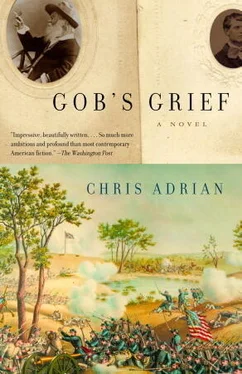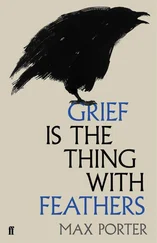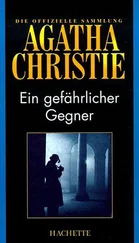The Magus, who is beloved of every spirit, cannot see us or hear us. We cannot reach him, and his brother cannot reach him. Heaven loves cruel ironies, but we hate them here. We cannot offer him our wisdom, so we offer it to you.
Maci knew it must be inappropriate, to think of children and their making, while at a funeral. But at the white celebration of death held in honor of Canning Woodhull, she did just that. Dear Aunt Amy , she’d written in another unsent letter, Even as he goes into me, I go into him, and fill him with doubt to topple his delusion. I think he will give up building on his machine in favor of building on a family. Isn’t it how married people manage their mortality, with children?
The children would come, one, two, three, four, another with every year, so she would barely have time to know what it was not to be pregnant. Yet it would be a delight, even the agony, because with every birth a little more of the machine would go away. Five, six, seven — the thing would be reduced to a shell. Eight, nine, ten — it would be scraps. Eleven, twelve — they would sell the house on Fifth Avenue to a man who made his fortune in pessaries.
“A sad day, Mrs. Woodhull,” Dr. Fie said at the funeral. They were wandering together among the monuments, like all the other white mourners who went in groups of two or three over the lush grass.
“My name is still Trufant, Dr. Fie.”
“But you will always be Mrs. Woodhull to me.” He nodded at Gob, where he was still weeping by the grave with Mr. Whitman.
“They have a special friendship, those two,” he said.
“Do you envy them?”
“No,” he said. “But I think I envy Canning Woodhull. Think of it, Mrs. Woodhull, a place where you can dip whiskey out of rivers, and there are ladies whose breath is a gas of peppermint and morphine.”
“One hears that Heaven is white and cold and pleasureless.”
“Well, I don’t think he went to Heaven,” he said. “What a strange occupation it must have been, to be an ex-husband. There goes Miss Claflin.” He put his arms behind his back like a schoolboy and sang:
“She’s sweeter than the flowers in May,
She’s lovelier far than any;
I care not what the world may say,
I pin my faith on Tennie!”
“Dr. Fie,” said Maci, “I think you are deranged with grief for your former colleague.”
“He was a wise man. I never appreciated that until I’d lost the opportunity to learn from him. And you can see that your husband feels the same way.” They walked along in silence for a while. When they came upon a sad-looking tree that drooped like a willow and hid three graves in its shade, they walked under it to inspect the headstones of a Mrs. Sancer and her children. “Recent departures,” said Dr. Fie. “We’ll have you back soon enough.”
Maci thought of the lady’s children. Were they buried with her in the same coffin, snuggling through eternity? She had forgotten, it seemed, that children could die. Now that she remembered again, it was a terrible surprise.
“Do you really think so?” Maci asked him. He plucked down a spray of leaves from the tree and gave them to her.
“Of course I do,” he said. He plucked another leaf from the tree and, taking a piece of charcoal from his pocket, bent to take a rubbing from one of the children’s headstones. Maci leaned against the trunk to watch him. “It puzzles me,” he said as he worked, “how you are a helper, but not a believer.”
“It puzzles me, too, Dr. Fie. And it puzzles me, that such strong minds could subscribe to such an easy, candy-coated belief.”
“But what if it is true, Mrs. Woodhull? What if they are all around us? What if they are all around you now?”
“Books are immortal in the world, Dr. Fie. Not people.” Maci closed her eyes.
“Are you well, Mrs. Woodhull?” he asked her in a little while.
“Just sleepy,” she said. In the silence, she’d been naming children in her mind: John, Jacob, little Victoria, Arthur, Corwin. She loved to name them. “Why don’t you walk on,” she told Dr. Fie. “I’ll join you in a moment.” He looked at her with an inscrutable expression, but then he nodded and walked out. Maci shielded her eyes against the flash of sunlight that came through the hanging leaves as Dr. Fie parted them. Little Tennessee, she thought, Polly, Christopher, Isabella, Constance, William.
I was surprised. Everyone is surprised. But why are we surprised? Haven’t we known, all our lives, that this would come? Such a quiet, subtle poison. Those who complain at how death ruins their days, they are called weak, or morbidly sentimental, but really they are prophets, who rail against the despair that every person practices, but none will acknowledge. Can you imagine, Sister, a world not poisoned? Once or twice in your life, you might truly forget — say, when, thinking yourself incapable of love, you find it, after all, or when your baby hangs dependent on your breast, and you think it must live forever because it feeds on pure, powerful love. But can you even imagine a world in which immortality is fact, not fancy or suspicion, a world in which the worm has departed from the rose? Can you? Can you even?
“What is equality?” Mrs. Woodhull asked, at the May convention of the People’s Party. “And what is justice? Shall we be slaves to escape revolution? Away with such weak stupidity! A revolution shall sweep over the whole country, to purge it of political trickery, despotic assumption, and all industrial injustice!”
“Wake up, my love,” Gob said to Maci, moving her head where it rested on his shoulder. “You’re missing the speech.”
“I wrote it,” Maci said. “I know it.” She opened her eyes and saw Mrs. Woodhull on the stage in Apollo Hall, in her red cheeks, white rose, and her blue dress. “Now you must admit she is a great woman,” Maci said sleepily.
“Who will dare,” Mrs. Woodhull asked, “to unlock the luminous portals of the future with the rusty keys of the past?”
Who indeed — it seemed everybody in the hall was willing to have a try. The whole place was on its feet and screaming for her, “Woodhull! Woodhull, Woodhull!”
Colonel Blood stepped up from the crowd, dressed in a fine black suit. He nominated Mrs. Woodhull to the Presidency of the United States of America, then cried out for all in favor of the nomination to second it, and the hall shook with ayes. Women wept and kissed each other. Men wept and kissed women. A fat man next to Maci jumped up and down on his chair until it broke under him, and then he lay laughing on the floor. “Woodhull!” he shouted.
Gob leaned close to Maci and said, “Look at her. She doesn’t even remember that someone has died. Woodhull! They think they’re shouting for my mother, but really they’re shouting for you. She is the Mrs. Woodhull who will be President, but you’re the Mrs. Woodhull who will bridge Heaven and Earth.”
“My name is Trufant, sir,” Maci said. She wondered if he might not be putting something else in her besides the stuff that makes a baby. Maybe it was an acid to erode her disbelief, something that went into her soul and her mind to make her weak and gullible. It was a terrible thought, and she always banished it when it came, but it was true that she felt weaker as the days passed, that she became ill sometimes with nerves. It was something different from madness, softer, sleepier, and harder to resist, this smothering, nervous fatigue.
“You are the most important person in the world,” he told her, while the crowd continued to scream for his mother. “Others will help me, but no one else can help me as you can, I need nobody as I need you. Who else is there but you in the world? I look around every day and the whole vast city is empty but for you. I look up above the roofs and see your face flashing in the sky.”
Читать дальше












